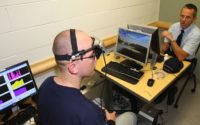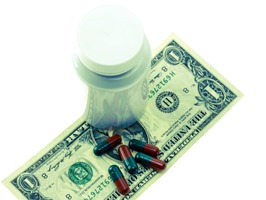How to Maintain a Full Recovery from Drug Abuse with A Mental Illness
According to recent statistics, drug abuse is still on the rise with heroin and fentanyl ranking at the top as the most abused when compared to cases versus oxycodone and hydrocodone. The probable reason is that it’s cheaper and easier to acquire. In a report released in November 2015 by the U.S. Surgeon General, it states that drug abuse is growing at an alarming rate. In other studies conducted the majority of the victims are males ranging from 18 to 25 years of age with one in ten also dealing with a mental illness. The good news is that today with all the attention in the media and an emphasis on recovery drug rehab for young men is available.

Extra challenges faced
In order for a person to successfully complete rehab and sustain abstinence after, they must have all the pieces of the puzzle in place. They need the proper facility with a program outlined specifically for them, a support staff that includes family, friends, therapists and doctors and self-commitment. This for an average person is a difficult and time-consuming progress. When a person has a mental illness like depression, anxiety or bipolar disorder it can take any recovery effort to the next level.
Eliminating the drugs and dealing with mental health issues
Many people with mental illness first turn to drugs as a way of coping with life. They find that using drugs allows them to fit in and socialize where without the drugs they would place a shield up and avoid human contact. In order to have a patient fully recover from the drug abuse, they must also take care to get to the real issue at hand their mental illness. Luckily, today mental illness is out in the open and people who have the disease can seek proper treatment without fear of others seeing them differently.
Therapy and family support
A recovering addict needs to have a support system in place from the start. These people consisting of the doctor, therapist, counselor, family and friends, are the foundation and play a vital role that will help encourage the recovery process. Without therapy, proper prescriptions and loving family and friends, the rate of success drops drastically. If you add in mental illness the recovery has a very small chance for holding.
Stay busy and focus on goal
During rehab, it’s easy to stay on track because you have the facility and staff in place and no access to drugs. Once the program is over it’s up to the individual to stay the course and focus on the goal of remaining drug-free, one day at a time. This is the period of time where success meets its great challenge. It’s important to remain steady, stay busy and attend support group meetings to reinforce your goals. At this time trying a new hobby, signing up for an exercise class or visiting with family and friends is a great way to get through the tough first few months.
Drug abuse is an epidemic that’s affecting every race, age, and gender. Combine this with mental illness affecting one in ten Americans and you have a problem that needs addressing. If you or a loved one suffers from mental illness and is now using drugs, there are many treatment options available to get you/ a loved one the help they need to beat the odds and enjoy life again.


